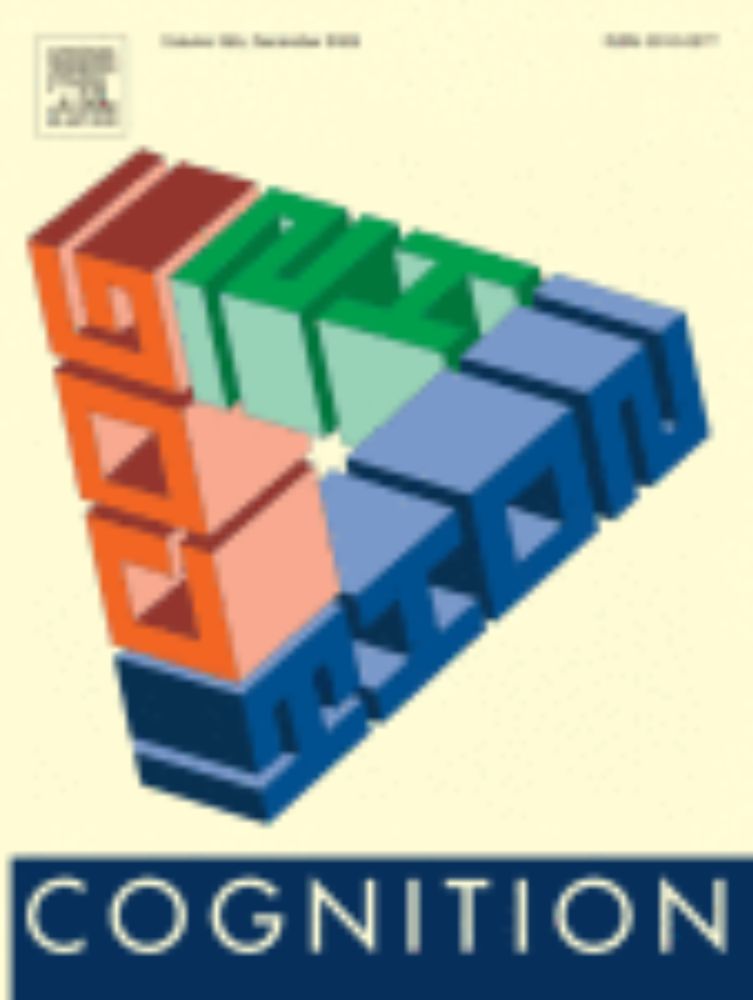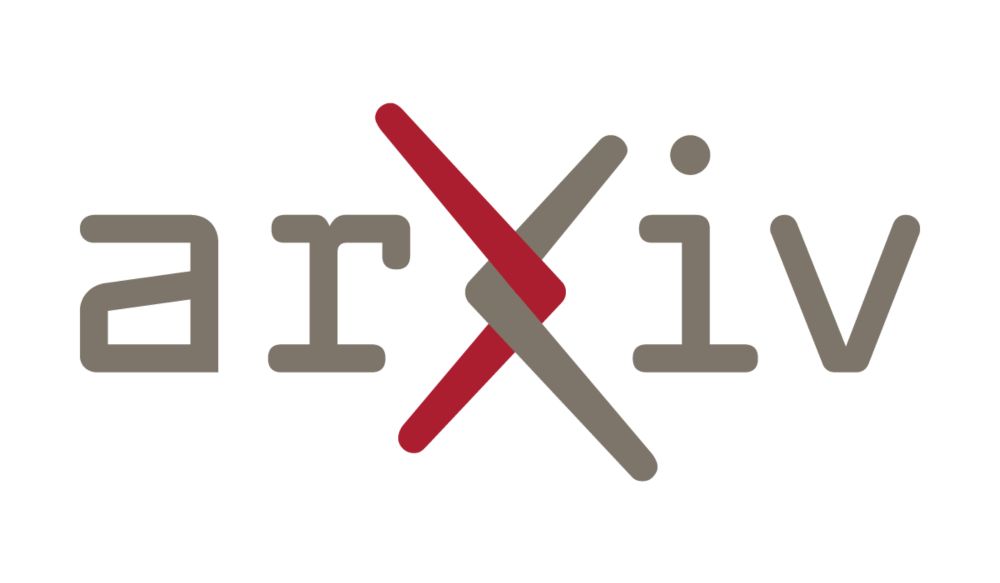Volunteer Opportunities, Events, and Petitions Near Me · Hands Off NYC on Mobilize
Find events, petitions, volunteer opportunities, fundraisers and more with Hands Off NYC.
There are nearly 100 events across NYC this weekend hosted by neighbors, for neighbors, to protect each other from ICE and organize in our communities.
Art builds, ICE-out parties, park play dates, DJ events, town halls. You name it—there’s something for everyone. Find an event near you here:
21.02.2026 02:25 —
👍 223
🔁 88
💬 4
📌 4
"if your toy statistical model predicts a certain curve under “ideal” research practices, and you find a different curve, it’s possible that the curve derived from undergraduate probability has nothing to do with scientific practice"
😂
18.02.2026 15:36 —
👍 1
🔁 0
💬 0
📌 0

Book cover. A silhouette of a person's head filled with colorful geometric shapes—perhaps symbolizing cognitive resources or deployment thereof. The style is attractive and modern, if generic.
text:
The Rational Use of Cognitive Resources
Falk Lieder, Frederick Callaway, Thomas L. Griffithts
I'm excited to announce that I had my first (co-authored) book published today! "The Rational Use of Cognitive Resources" with Falk Lieder and Tom Griffiths (@cocoscilab.bsky.social ). You can read it for free! (see thread)
18.02.2026 01:05 —
👍 140
🔁 45
💬 2
📌 0
Excited to launch Principia, a nonprofit research organisation at the intersection of deep learning theory and AI safety.
Our goal is to develop theory for modern machine learning systems that can help us understand complex network behaviors, including those critical for AI safety and alignment.
1
16.02.2026 09:27 —
👍 91
🔁 26
💬 1
📌 1
SWC is the best place to do neuroscience in the world
14.02.2026 00:02 —
👍 21
🔁 4
💬 0
📌 0
If you work at the intersection of computational neuroscience and machine learning, consider applying for this postdoc position (January 2027 start date):
academicpositions.harvard.edu/postings/15868
An opportunity to work with a great group of people across Harvard, MIT, and UC Berkeley.
10.02.2026 19:36 —
👍 71
🔁 48
💬 3
📌 2
My lab is looking to recruit 1-2 paid summer interns to do wet lab work on learning in a unicellular organism (Stentor coeruleus). You can apply here:
forms.gle/b47WpSobjFjo...
05.02.2026 11:21 —
👍 30
🔁 27
💬 1
📌 1
🪰 How do dozens of tiny fly muscles cooperate to move a leg?
We’re excited to share the first 3D, data-driven musculoskeletal model of Drosophila legs based on Hill-type muscles, running in OpenSim and MuJoCo simulation environments.
Preprint: arxiv.org/abs/2509.06426
12.09.2025 21:26 —
👍 64
🔁 20
💬 1
📌 2

An experimental finding sure to shock: white evangelicals are especially attuned to slights against Christians, but significantly less likely to view same actions as discriminatory when against a religious out-group. And this double-standard is unique to white evangelicals. doi.org/10.1111/jssr...
25.01.2026 21:56 —
👍 119
🔁 40
💬 12
📌 3

Jobs | City University of New York
I'm very excited to announce that the Psychology Department at Brooklyn College of CUNY is hiring a tenure-track line in Cognitive Neuroscience. Applications are being accepted now, and review will begin on or after February 23rd, please repost!
#PsychSciSky #neuroskyence
cuny.jobs/brooklyn-ny/...
22.01.2026 16:12 —
👍 17
🔁 23
💬 0
📌 0
claude code with Opus 4.5
22.01.2026 04:15 —
👍 0
🔁 0
💬 0
📌 0
this will unfortunately probably only fly at non-U.S. institutions :(
20.01.2026 19:32 —
👍 1
🔁 0
💬 0
📌 0
will this article convince anybody who doesn't already see the value in writing?
19.01.2026 01:09 —
👍 0
🔁 0
💬 0
📌 0

Children leverage predictive representations for flexible, value-guided choice
By harnessing a mental model of how the world works, learners can make flexible choices in changing environments. However, while children and adolesce…
New paper out in cognition with @arikahn.bsky.social, @nathanieldaw.bsky.social, Cate Hartley, and @katenuss.bsky.social !!
We show that children 👶 use predictive representations (e.g. SR) to guide their choices, providing an account of how they can make flexible choices in a changing world
15.10.2025 10:52 —
👍 46
🔁 12
💬 1
📌 1
📣 We’re currently reviewing applications for this postdoctoral position. Next review date: Jan 26. Feel free to reach out with any questions! recruit.ap.ucsb.edu/JPF03027
13.01.2026 18:23 —
👍 7
🔁 3
💬 0
📌 0
We're hiring! The Computational Clinical Science Lab @ Yale is seeking a full-time lab manager/research coordinator to start in early summer 2026.
For more information about the position and to apply: forms.gle/LtQwVgPUfaGk...
Please share widely & consider applying!
13.01.2026 16:45 —
👍 54
🔁 51
💬 0
📌 1
With some trepidation, I'm putting this out into the world:
gershmanlab.com/textbook.html
It's a textbook called Computational Foundations of Cognitive Neuroscience, which I wrote for my class.
My hope is that this will be a living document, continuously improved as I get feedback.
09.01.2026 01:27 —
👍 584
🔁 237
💬 16
📌 10
Gentle reminder for the RL folks out there:
RLC 2026 → Montreal 🇨🇦 (Aug 16–19)
Abstract: Mar 1 | Submission: Mar 5 (AOE) | rl-conference.cc/callforpaper...
Looking forward to receiving your submission!
07.01.2026 18:46 —
👍 19
🔁 6
💬 1
📌 1

vibecoded a little chrome extension to fix a perpetual bugbear with reading pdfs: being sent on search expeditions to figure out where a particular parameter was introduced.
Instead, just type in the latex expression and get back unicode that you can ctrl/cmd+F easily
github.com/apoorvalal/m...
28.12.2025 19:09 —
👍 64
🔁 7
💬 5
📌 1
codebases almost always have to be rewritten. maybe build initial prototypes with AI, then study the structute and choices and design the final output?
the fast prototyping can be very useful and is almost always wrong in important ways
26.12.2025 00:57 —
👍 4
🔁 0
💬 1
📌 0
RLJ | RLC Call for Papers
Hi RL Enthusiasts!
RLC is coming to Montreal, Quebec, in the summer: Aug 16–19, 2026!
Call for Papers is up now:
Abstract: Mar 1 (AOE)
Submission: Mar 5 (AOE)
Excited to see what you’ve been up to - Submit your best work!
rl-conference.cc/callforpaper...
Please share widely!
23.12.2025 22:16 —
👍 61
🔁 28
💬 0
📌 7
can you tell us more about why mean field is good for scale? I have a naive mental model that it relies on local averages of populations which feels intuitively wrong? but I'm naive
22.12.2025 17:56 —
👍 1
🔁 0
💬 1
📌 0
I think it's great as a productivity tool.
I'm talking about getting social support like treating it like a friend or romantic partner (which is shockingly common)
20.12.2025 23:12 —
👍 0
🔁 0
💬 1
📌 0
a lot of people use AI as social support
I wonder if AI, especially at this stage, isn't the junk food of social support
does junk food provide nutrients we need? yes
but it does so in such an unbalanced way from what we evolved for that it's unhealthy as our main food source
20.12.2025 22:48 —
👍 4
🔁 0
💬 2
📌 0

How do biological agents learn for the future?
Our perspective piece on the value of prospective learning in neuroscience is finally out. This is part of a long running collaboration with @kordinglab.bsky.social & Josh Vogelstein (as well as many other people)
www.sciencedirect.com/science/arti...
17.12.2025 17:06 —
👍 90
🔁 29
💬 7
📌 1










